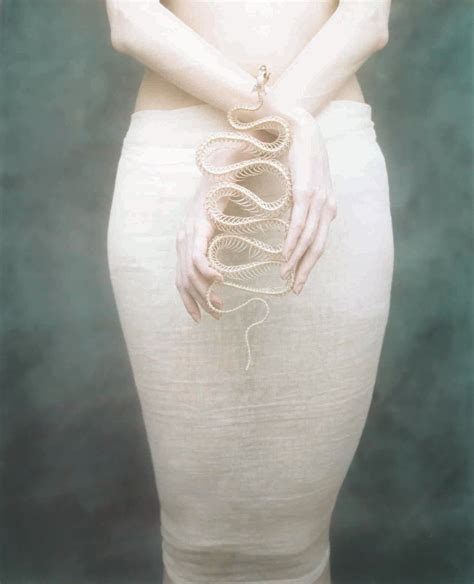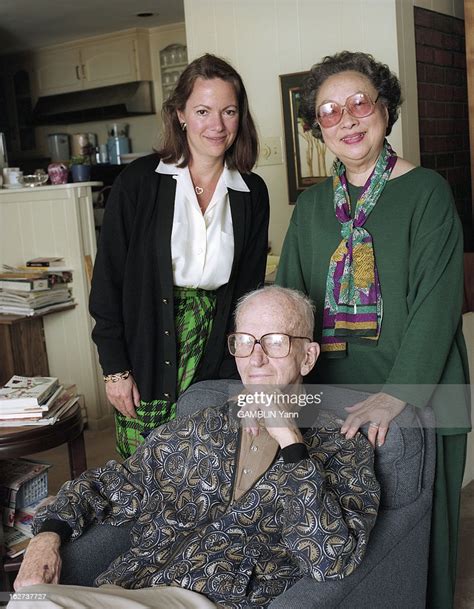A Quote by Elizabeth Wurtzel
Pain or not, I would most likely walk around in a suicidal reverie the rest of my life, never actually doing anything about it. Was there a psychological term for that? Was there a disease that involved an intense desire to die, but no will to go through with it? Couldn't talk and thoughts of suicide be considered a whole malady of their own, a special subcategory of depression in which the loss of a will to live has not quite been displaced by a determination to die?
Quote Topics
About
Actually
Anything
Around
Been
Considered
Depression
Desire
Determination
Die
Disease
Displaced
Doing
Go
Intense
Involved
Life
Likely
Live
Loss
Malady
Most
My Life
Never
Own
Pain
Psychological
Quite
Rest
Reverie
Special
Suicidal
Suicide
Talk
Term
Thoughts
Through
Walk
Which
Whole
Will
Will To Live
Would
Related Quotes
Suicide is a particularly awful way to die: the mental suffering leading up to it is usually prolonged, intense and unpalliated. There is no morphine equivalent to ease the acute pain, and death, not uncommonly, is violent and grisly. The suffering of a suicidal is private and inexpressible, leaving family members, friends and colleagues to deal with an almost unfathomable kind of loss, as well as guilt. Suicide carries in its aftermath a level of confusion and devastation that is, for the most part, beyond description.
I would like to die peacefully with Thomas Tallis on my iPod before the disease takes me over and I hope that will not be for quite some time to come, because if I knew that I could die at any time I wanted, then suddenly every day would be as precious as a million pounds, if I knew that I could die, I would live. My life, my death, my choice.
What people don't understand when you've already been a suicide and pulled through is that after the sadness comes fear: Where is my mind going with this? I don't want to die. I do not want to die. When you don't have so much control over your own thoughts, over the myriad voices in your head, you don't know where they could go.
The reality is that you will grieve forever. You will not "get over" the loss of a loved one; you will learn to live with it. You will heal and you will rebuild yourself around the loss you have suffered. You will be whole again but you will never be the same. Nor should you be the same nor would you want to.
Manic-depression distorts moods and thoughts, incites dreadful behaviors, destroys the basis of rational thought, and too often erodes the desire and will to live. It is an illness that is biological in its origins, yet one that feels psychological in the experience of it, an illness that is unique in conferring advantage and pleasure, yet one that brings in its wake almost unendurable suffering and, not infrequently, suicide.
Live Free or Die Hard may work better for an audience that doesn't know much about the series is than it will for Die Hard die hards, who will be wondering who that impersonator is and what he did with the real John McClane. The original Die Hard came out of nowhere to blitz the 1988 summer box office. The fourth installment arrives with a weight of expectations that Atlas would have trouble shouldering and, when the dust settles in September, it's unlikely that Live Free or Die Hard will be one of this year's big success stories.
We do not know what awaits each of us after death, but we know that we will die. Clearly, it must be possible to live ethically-with a genuine concern for the happiness of other sentient beings-without presuming to know things about which we are patently ignorant. Consider it: every person you have ever met, every person you will pass in the street today, is going to die. Living long enough, each will suffer the loss of his friends and family. All are going to lose everything they love in this world. Why would one want to be anything but kind to them in the meantime?
I don't want to die in pain or in an undignified way, I don't want any of the people I love to die in, die painfully. But I'm aware of the fact that they may die before I do and I have to part with them and take the loss. The hardest thing of love is to let go. But I think I can get let go of almost anybody.
When I die, the world is going to talk about me. They will never forget me and I will never have any regrets. If nothing else, the world will know I was here. I think that everyone should make their mark wherever they are. They will talk about you way after you're gone. Make your mark. Live your life.
When gods die, they die hard. It's not like they fade away, or grow old, or fall asleep. They die in fire and pain, and when they come out of you, they leave your guts burned. It hurts more than anything you can talk about. And maybe worst of all is, you're not sure if there will ever be another god to fill their place. Or if you'd ever want another god to fill their place. You don't want the fire to go out inside you twice.
Tania,” he whispers, “promise me you won’t forget me when I die.” “You won’t die, soldier,” she says. “You won’t die. Live! Live on, breathe on, claw onto life, and do not let go. Promise me you will live for me, and I promise you, when you’re done, I will be waiting for you.” She is sobbing. “Whenever you’re done, Alexander, I will be here, waiting for you.





































